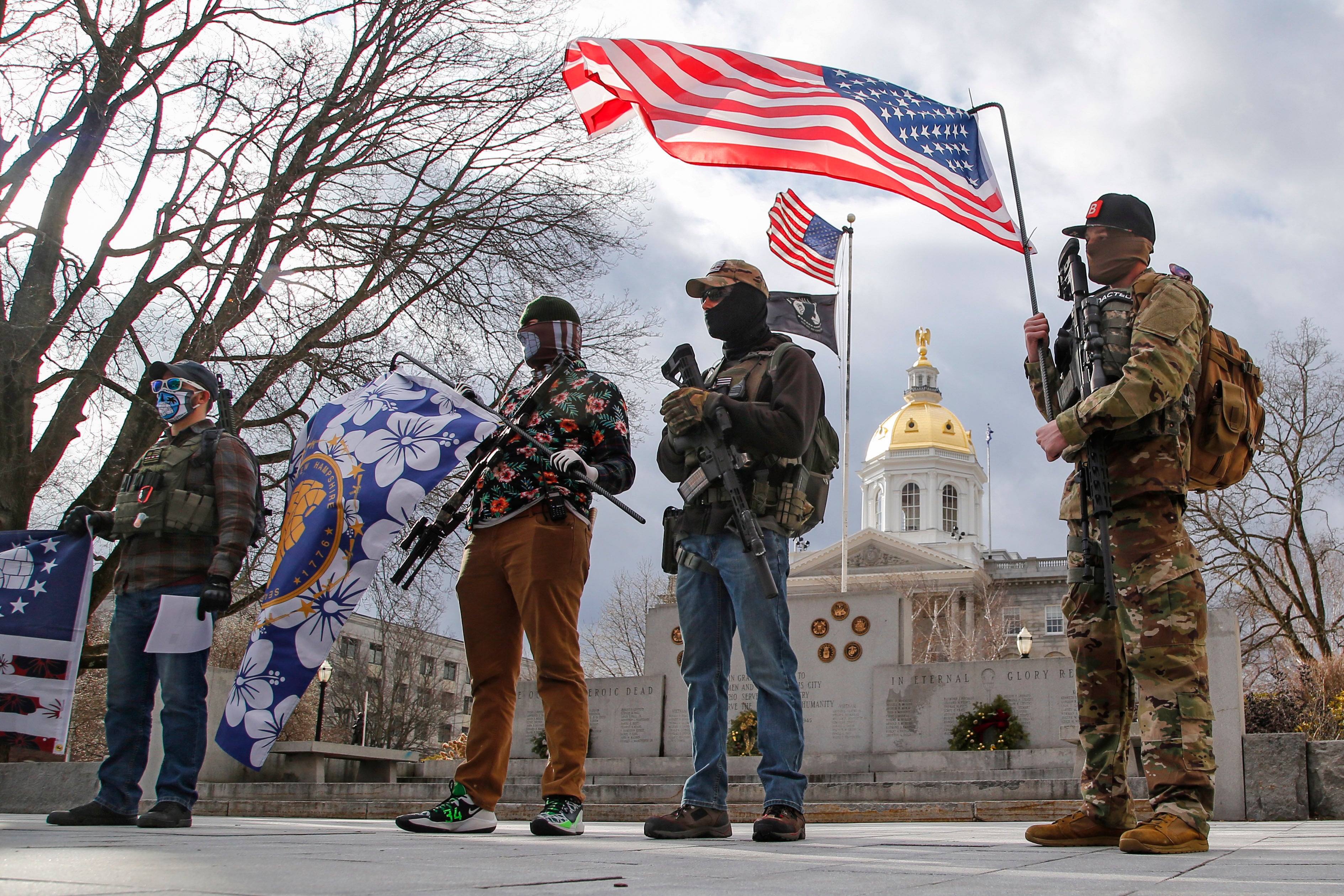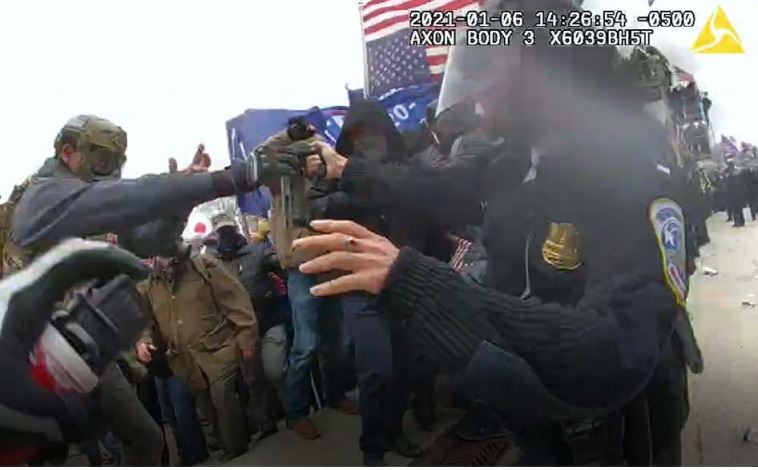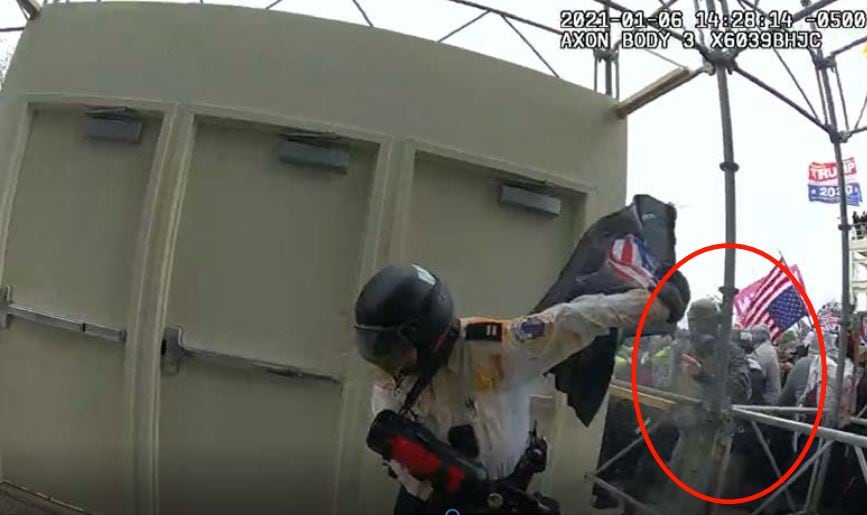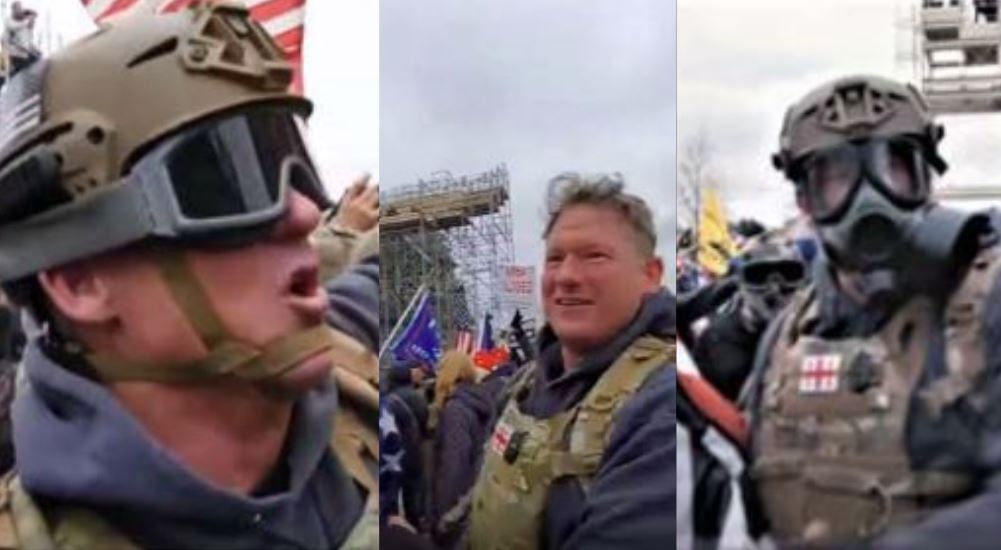A former Army Green Beret with more than two decades of service was arrested Wednesday and charged with using a flag as a spear against a police officer during the Capitol riot, according to an FBI criminal complaint unsealed Thursday.
Retired Sgt. 1st Class Jeffrey A. McKellop donned a helmet and gas mask and moved toward D.C. Metropolitan Police lines as officers attempted to prevent a mob of rioters from breaching the Capitol building at about 2:30 p.m. on Jan. 6, the complaint alleged.
Police body cameras caught McKellop pushing officers, trying to grab a riot control spray canister from one and throwing a flagpole like a spear at another, causing a laceration to that officer’s face, the complaint alleged.
Screenshots included in the document showed McKellop wearing the same helmet and ballistic vest that he used in an overseas combat zone in 2018, according to one of two witnesses who came forward to identify him to FBI agents.
After McKellop’s military service ended in 2010, he worked as a contractor in Iraq, a person familiar with the case but who declined to be named told Army Times. It was not immediately clear whether that was the only country in which McKellop worked as a contractor.
RELATED

McKellop enlisted in 1987 as an infantryman, according to Army officials. He later went through the Army’s Special Forces Qualification Course and served as an 18 Echo — a Green Beret radioman.
McKellop deployed to Afghanistan from January through May in 2002 and again from June through December in 2004. He also deployed to Iraq from September 2003 to February 2004 and again from May 2005 to January 2006.
Other military veterans have been charged in connection to the Capitol riot, but McKellop appears to be the first Green Beret. The person familiar with McKellop’s case said he’s currently in police custody in D.C. and has a detention hearing Monday.

McKellop faces a range of charges, including assaulting, resisting or impeding officers with a dangerous weapon; obstruction of law enforcement during civil disorder; violent entry and disorder on Capitol grounds; and engaging in physical violence in a restricted building.
Hundreds of charges have been lodged against people involved in the Capitol breach, but McKellop’s assault charge is one of the more severe cases.
McKellop’s face was obscured by his gas mask during his altercations with police, but the patches and clothing he wore were recognizable from pictures taken of him earlier that day, according to the complaint.
McKellop wore a patch resembling the country of Georgia’s flag on the front of his kit, and an Army Special Forces patch on his backpack that appears to read, “de oppresso liber,” which means, “to liberate the oppressed” in Latin.
Footage from social media gathered by FBI agents also showed McKellop carrying a flagpole that has two flags attached — a “Blue Line” flag intended to show support for police and a thirteen-star “Betsy Ross” flag with the words, “Trump. Keep America Great,” printed on it. The same social media video captures close ups of McKellop’s face.

More than 300 people have been charged in connection to the Capitol riot. At least 33 rioters who were identified have military backgrounds, and a third of those also had “concrete ties to various extremist organizations,” such as the Proud Boys and Oath Keepers, according to George Washington University’s Program on Extremism.
The arrests of such troops and veterans, especially ones who held positions of considerable responsibility during their service, have led some military officials to realize there may be a problem brewing in the ranks.
Defense Secretary Lloyd Austin announced in early February plans for a one-day stand-down across the armed services to address the issue of extremism among troops.
During a press briefing in mid-February, Austin also noted that there are plans to begin gathering data on extremism, which has so far been lacking, to understand the extent to which it is actually an issue among troops.
“I expect for the numbers to be small. But, quite frankly, they’ll probably be a little bit larger than most of us would guess,” Austin said. “I would just say that small numbers in this case can have an out-sized impact.”
Kyle Rempfer was an editor and reporter who has covered combat operations, criminal cases, foreign military assistance and training accidents. Before entering journalism, Kyle served in U.S. Air Force Special Tactics and deployed in 2014 to Paktika Province, Afghanistan, and Baghdad, Iraq.





